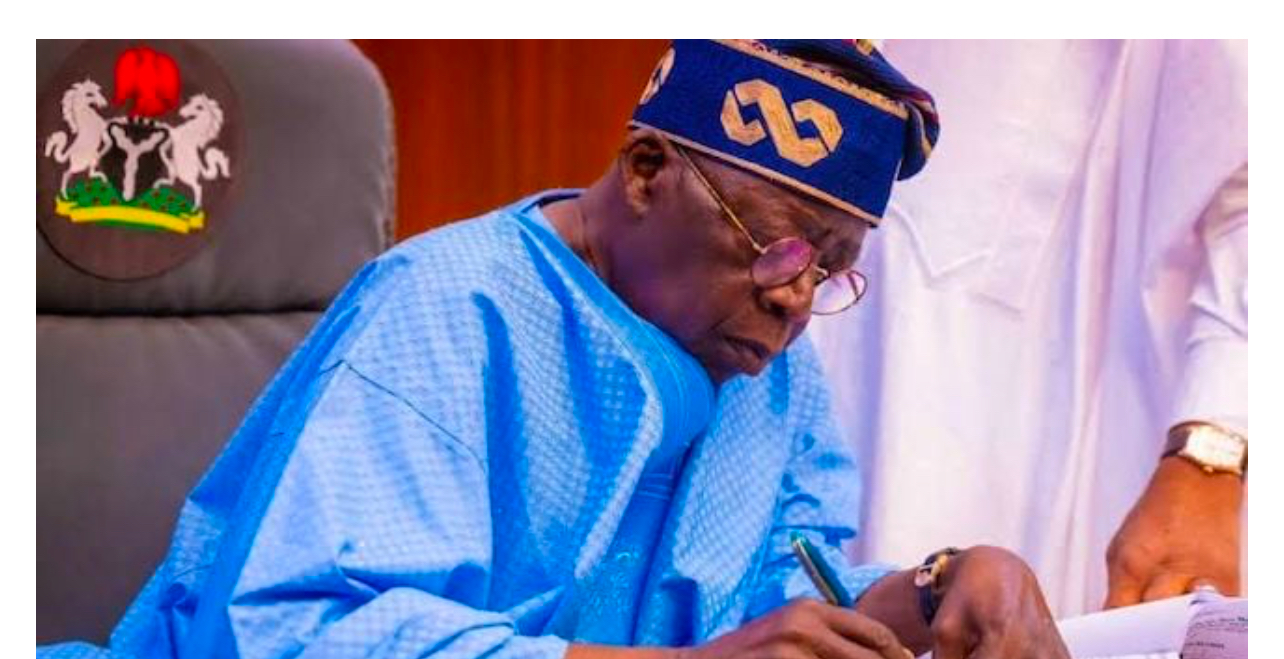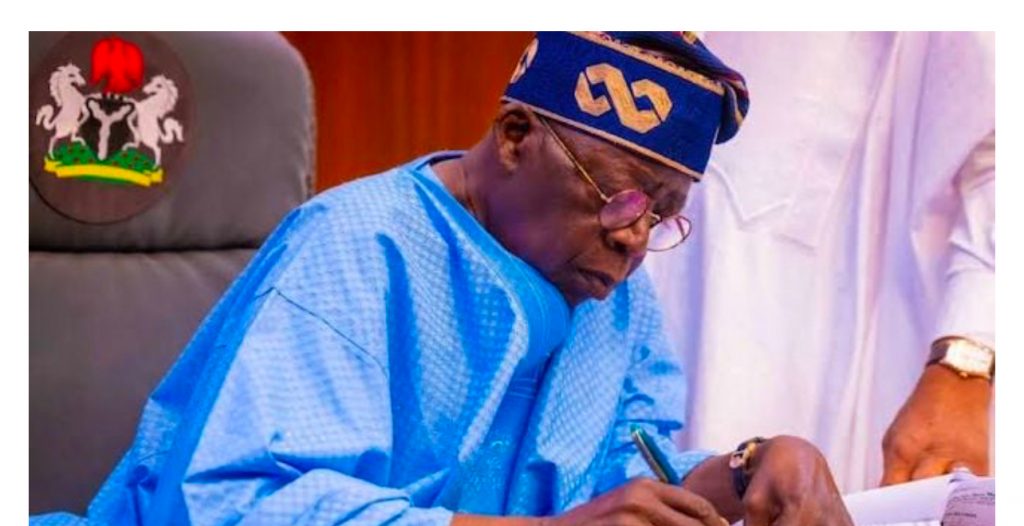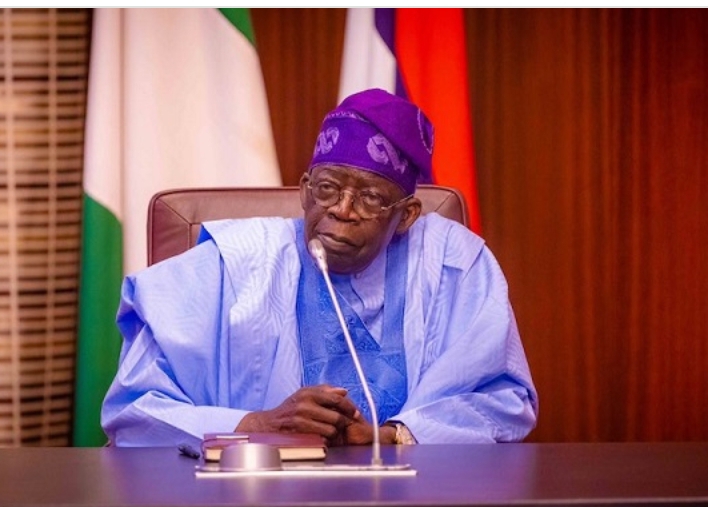 President Bola Tinubu has asked the Central Bank of Nigeria to suspend the implementation of the controversial cybersecurity levy policy and ordered a review.
President Bola Tinubu has asked the Central Bank of Nigeria to suspend the implementation of the controversial cybersecurity levy policy and ordered a review.
This followed the decision of the House of Representatives, which, last Thursday, asked the CBN to withdraw its circular directing all banks to commence charging a 0.5 per cent cybersecurity levy on all electronic transactions in the country.
The CBN on May 6, 2024, issued a circular mandating all banks, mobile money operators, and payment service providers to implement a new cybersecurity levy, following the provisions laid out in the Cybercrime (Prohibition, Prevention, etc) (Amendment) Act 2024.
According to the Act, a levy amounting to 0.5 per cent of the value of all electronic transactions will be collected and remitted to the National Cybersecurity Fund, overseen by the Office of the National Security Adviser.
Financial institutions are required to apply the levy at the point of electronic transfer origination.
The deducted amount is to be explicitly noted in customer accounts under the descriptor “Cybersecurity Levy” and remitted by the financial institution. All financial institutions are required to start implementing the levy within two weeks from the issuance of the circular.
By implication, the deduction of the levy by financial institutions should commence on May 20, 2024.
However, financial institutions are to make their remittances in bulk to the NCF account domiciled at the CBN by the fifth business day of every subsequent month.
The circular also stipulates a timeframe for financial institutions to reconfigure their systems to ensure complete and timely submission of remittance files to the Nigeria Interbank Settlement Systems Plc as follows: “Commercial, Merchant, Non-Interest, and Payment Service Banks – Within four weeks of the issuance of the Circular.
“All other Financial Institutions (Microfinance Banks, Primary Mortgage Banks, Development Financial Institutions) – Within eight weeks of the issuance of the Circular,” the circular noted.
The CBN has emphasised strict adherence to this mandate, warning that any financial institution that fails to comply with the provisions will face severe penalties. As outlined in the Act, non-compliant entities are subject to a minimum fine of two per cent of their annual turnover upon conviction.
The circular provides a list of transactions currently deemed eligible for exemption, to avoid multiple applications of the levy.
These are loan disbursements and repayments, salary payments, intra-account transfers within the same bank or between different banks for the same customer, and intra-bank transfers between customers of the same bank.
Exemptions include other financial institutions’ transfers to their correspondent banks, interbank placements, banks’ transfers to CBN and vice versa, inter-branch transfers within a bank, cheque clearing and settlements, letters of credit, and banks’ recapitalisation-related funding.
Others are bulk funds movement from collection accounts, savings, and deposits including transactions involving long-term investments such as treasury bills, bonds, and commercial papers, and government social welfare programmes transactions.
These may include pension payments, non-profit and charitable transactions including donations to registered non-profit organisations or charities, educational institutions transactions, including tuition payments and other transactions involving schools, universities, or other educational institutions, and transactions involving the bank’s internal accounts, inter-branch accounts, reserve accounts, nostro and vostro accounts, and escrow accounts.
The introduction of the new levy sparked varied reactions among stakeholders as it is expected to raise the cost of conducting business in Nigeria and could potentially hinder the growth of digital transaction adoption.
Members of the House of Representatives on Thursday asked the Central Bank of Nigeria to withdraw the circular directing financial institutions to commence implementation of the 0.5 per cent cybersecurity levy, describing it as “ambiguous”.
The development was in response to a motion on the urgent need to halt and modify the implementation of the cybersecurity levy, moved by Kingsley Chinda.
According to the House, the CBN is to withdraw the initial circular, and “issue a more understandable one”.
Chinda had drawn the attention of the House to multiple interpretations of the CBN directive against the specifications in the Cybersecurity Act.
The House then expressed worry, that the Act would be implemented in error if immediate steps were not taken, to address the concerns around the interpretation of the CBN directive and the Cybersecurity Act.
However, sources with knowledge of Tinubu’s position on the issue told Sunday PUNCH that the President was aware of the economic burden on Nigerians since his hardline economic reforms began last May, adding that he did not want to risk adding to the burden with more levies.
A senior presidency official who preferred not to be named told our correspondent, “The President is sensitive to what Nigerians feel. And he will not want to proceed with implementing a policy that adds to the burden of the people.
“So, he has asked the CBN to hold off on that policy and ordered a review. I would have said he ordered the CBN, but that is not appropriate because the CBN is autonomous. But he has asked the CBN to hold off on it and review things again.”
Another presidency official who preferred to remain anonymous as he was not authorised to speak on the issue said these discrepancies prompted the President to order a review.
“If you look at it, the law predates the Tinubu administration. It was enacted in 2015 and signed by Goodluck Jonathan. It is only being implemented now.
“You know he (Tinubu) was not around when that directive was being circulated. And he does not want to present his government as being insensitive. As it is now, the CBN has held off the instruction to banks to start charging people. So, the President is sensitive. His goal is not to just tax Nigerians like that. That is not his intention. So, he has ordered a review of that law.”
Meanwhile, the Vice President, Kashim Shettima, on Saturday, said the tax reforms undertaken by the Bola Tinubu administration were not aimed to frustrate Nigerians but to sustain the country’s investment friendliness.
The VP, represented by his Special Adviser on General Duties Dr Aliyu Umar, spoke at the close-out retreat of the Presidential Fiscal Policy and Tax Reforms Committee held at the Transcorp Hilton, Abuja. Shettima’s Spokesperson, Mr Stanley Nkwocha, revealed this in a statement titled, ‘Our tax reforms initiated for overall benefits of Nigerians – VP Shettima’.
He argued that contrary to speculations in some quarters, “we are not here to frustrate any sector of our economy but to create an administrative system that ensures the benefits of a thriving tax system for all our citizens”.
Reacting to the decision of the President, the Peoples Democratic Party’s National Publicity Secretary, Debo Ologunagba, welcomed the suspension of the cybersecurity levy policy implementation, noting that the policy should not have been introduced at all.
He said, “It was an anti-people decision from the beginning. It was an insensitive decision from the beginning. It was an ambush on the people who had already been frustrated by the multiple layers of taxes from the beginning. So, it was a very cruel introduction because you do not need to tax us to have cybersecurity.
“You do not need to tax the villagers or the people in the rural areas for cybersecurity. People who do not even have light. They don’t even have access to an internet connection. Well, if that is a show that the president is listening, then that is good. Then, he must now continue to listen more and begin to look at where the problem started and that is the issue of removal of subsidy without any cushioning of its effect. What will happen is that the president should go back further so that Nigerians can breathe by ensuring a policy that will reduce the hardship of the sudden removal of the subsidy.”
Also, reacting to the development, the Chief Executive Officer, Centre for Promotion of Private Enterprises, Dr Muda Yusuf, said the President’s decision shows he is a democrat, adding that the CBN should ensure that the reviewing process of the policy is very inclusive.
“The President’s decision is in line with the clamour by the people. There had been a lot of outcry about it and the fact that the president has responded shows that he is a democrat. It shows he is a listening leader. So we must commend him for listening to the voices of the people. It is a welcome development.
“The government should now look at the policy. I am sure it is not going to be only the CBN. Even the legislators should also look at it because they passed the law. But the key thing is that the policy needs to be reviewed. And the apex bank should take the review beyond the government level. It must consult the stakeholders and the organised private sectors. That is what will make the review very inclusive.”
The Director of Centre for Anti-corruption and Open Leadership, Debo Adeniran, said while President Tinubu should be commended for the decision, the Federal Government should consider a total cancellation of the policy instead of a temporary suspension.
He said, “This is the right step in the right direction. It further accentuates the fact that President Tinubu listens to the voice of the people. And maybe it is because he used to be an activist. He knows that the voice of the people is the voice of God.
“But then, the suspension of the policy is not enough. It should result in the total cancellation of the policy. All the taxes, rates, and levies that are being imposed on the people should be streamlined so that if we want to pay personal income taxes, we should know that that is what we are paying. It is not that the government will take off personal income taxes and we should now pay for every service that we should enjoy from the government. And the increase in micro-economic products like petroleum and others should be made cheaper and affordable for all Nigerians,” he stated.
Also, a professor of Economics at Olabisi Onabanjo University, Sheriffdeen Tella, cautioned the Federal Government against creating additional hardship for Nigerians. He said while the policy was not a bad idea, the timing was inappropriate.
He said, “There is nothing wrong with the levy but it was at the wrong time. The government should stop creating problems for itself. People are battling inflation and all sorts of inefficiency and you are imposing a tax on them. The president has done well by reversing it. It is not the right time to impose additional burdens on Nigerians. I commend the President for having the courage to do the right thing.”
Meanwhile, the Socio-Economic Rights and Accountability Project threatened to file a lawsuit if the Federal Government did not withdraw the levy within 48 hours. The group stated that the levy “patently violates the provisions of the Nigerian constitution 1999 (as amended) and the country’s international human rights obligations and commitments”.
However, the Nigeria Labour Congress stated that the cybersecurity levy and several other levies and taxes already imposed on the citizens had deepened the financial burden on the populace currently grappling with economic challenges.
A statement signed by the NLC President, Joe Ajaero, demanded the reversal of the directive by CBN, adding that the Federal Government should prioritise policies that alleviate the financial burdens of Nigerians. NLC said the move, which was ostensibly aimed at bolstering cybersecurity measures, could exacerbate the financial strain already faced by the populace.
Post Views: 530

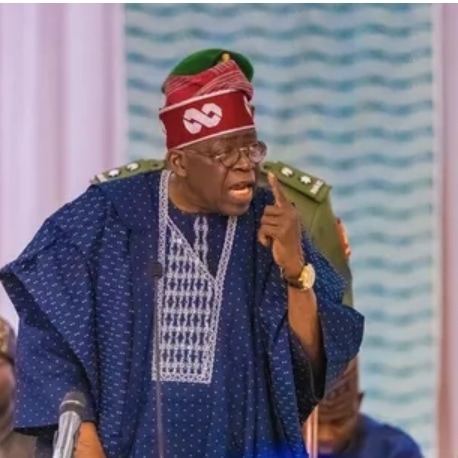
 President Bola Tinubu has asked the Central Bank of Nigeria to suspend the implementation of the controversial cybersecurity levy policy and ordered a review.
President Bola Tinubu has asked the Central Bank of Nigeria to suspend the implementation of the controversial cybersecurity levy policy and ordered a review.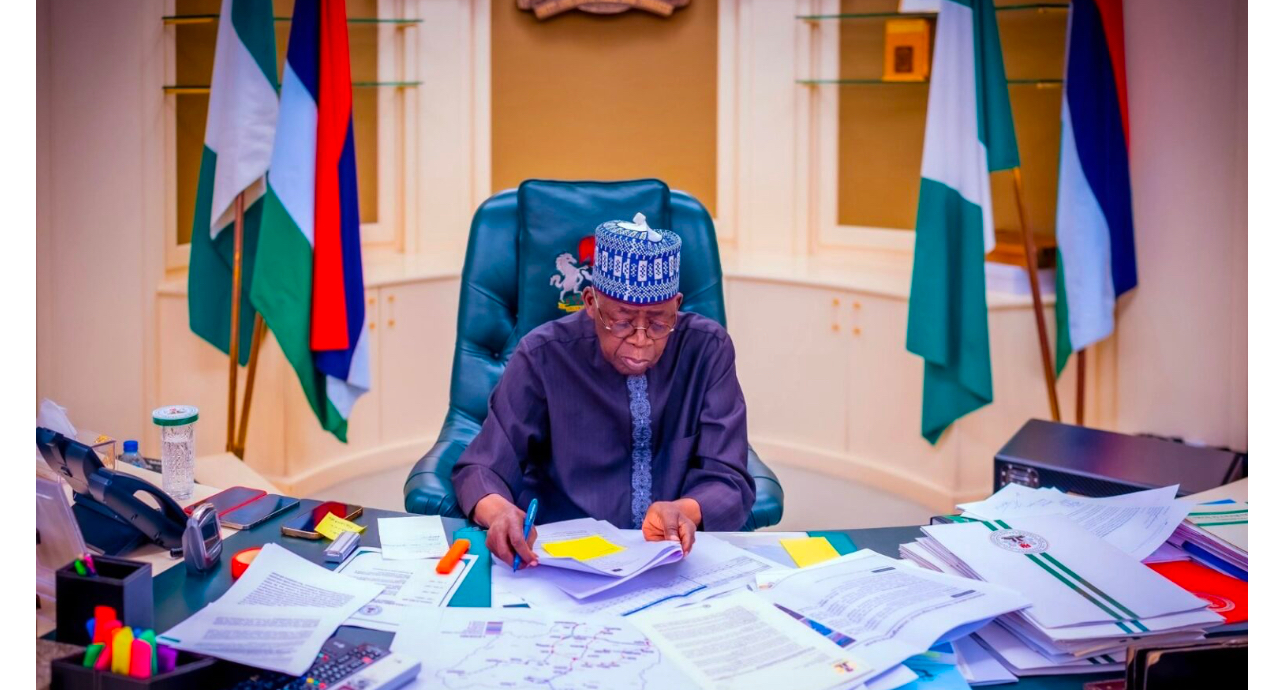
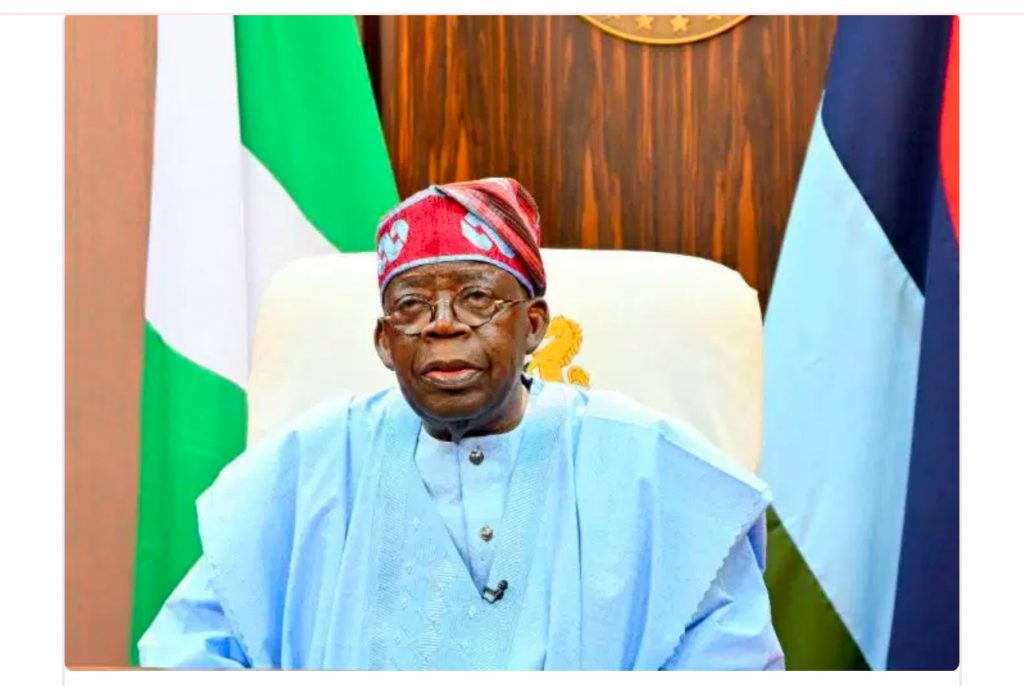 Disturbed by the state of training institutions for the Nigeria Police Force (NPF), Nigeria Security and Civil Defence Corps (NSCDC) and other internal security agencies, President Bola Tinubu has declared emergency on the facilities.
Disturbed by the state of training institutions for the Nigeria Police Force (NPF), Nigeria Security and Civil Defence Corps (NSCDC) and other internal security agencies, President Bola Tinubu has declared emergency on the facilities. 
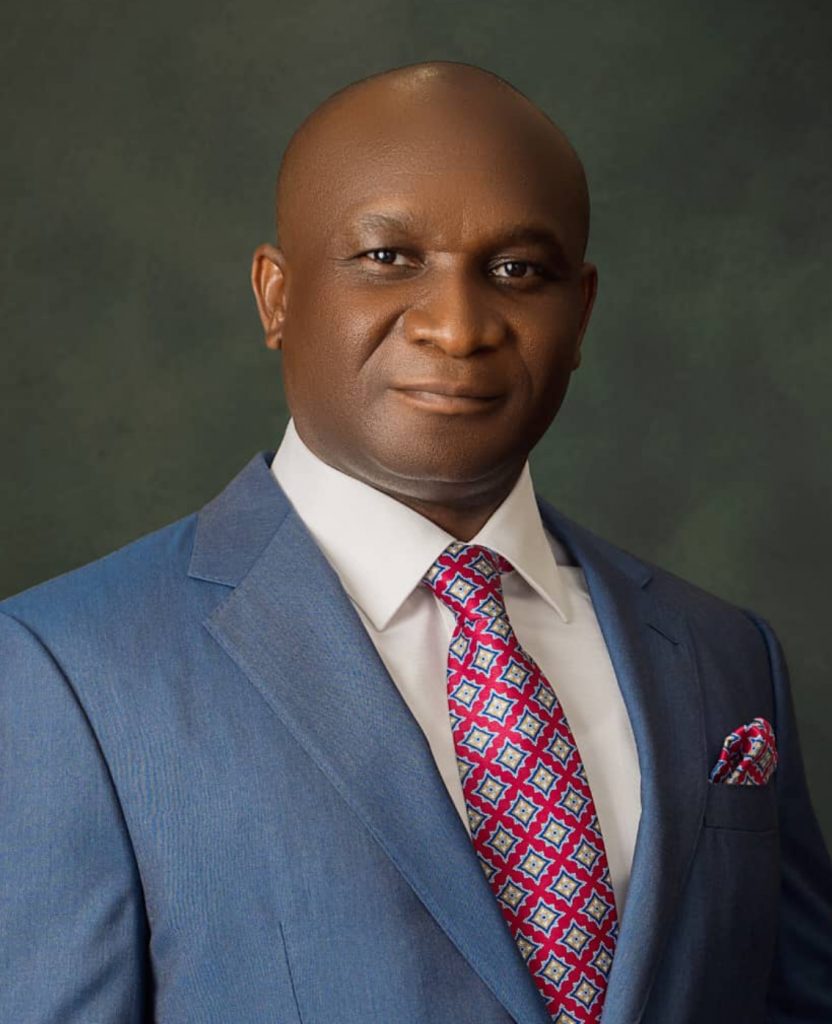 The Niger Delta Development Commission, NDDC, is hosting a two-day strategic meeting with commissioners, permanent secretaries, and directors of agriculture, fisheries & livestock in the nine Niger Delta states.
The Niger Delta Development Commission, NDDC, is hosting a two-day strategic meeting with commissioners, permanent secretaries, and directors of agriculture, fisheries & livestock in the nine Niger Delta states.